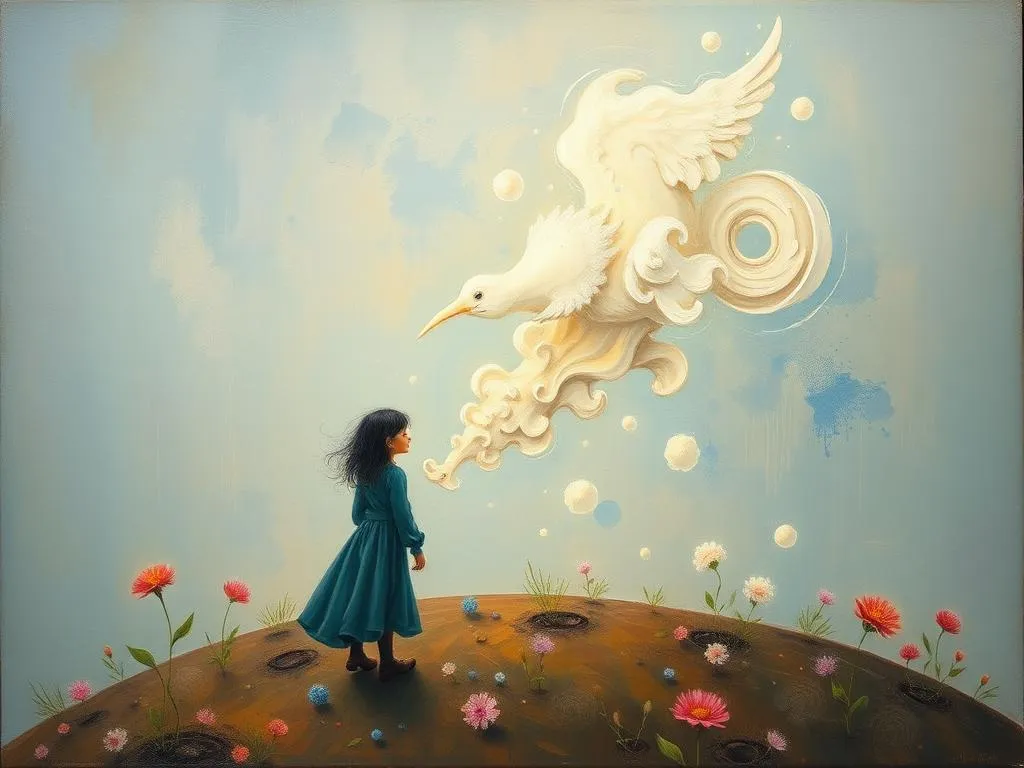
Dreams serve as a fascinating lens into our subconscious, often unveiling emotions, fears, and unresolved issues that we might not confront in our waking lives. Among the myriad types of dreams, those that encompass sorrowful events resonate deeply with many individuals. Such dreams can evoke feelings of sadness, loss, and reflection, prompting us to explore their meanings and implications. The relevance of these dreams lies not only in their emotional weight but also in their ability to illuminate aspects of our lives that may require attention or healing.
Symbolism and Meaning
When interpreting dreams centered around sorrowful events, it is essential to delve into the symbols and emotions that populate these nocturnal narratives. Common symbols often include tears, darkness, loss, and separation. Each of these symbols carries a specific weight and can vary in meaning based on the dreamer’s personal context.
Tears in dreams can signify a release of pent-up emotions. They may represent the dreamer’s need to express feelings that have been suppressed in their waking life. This release can be cathartic, allowing the dreamer to confront their pain and move toward healing.
Darkness, on the other hand, often symbolizes uncertainty or fear. It can reflect a state of mind that feels overwhelming, suggesting that the dreamer is grappling with feelings of despair or hopelessness. The presence of darkness in a dream might indicate that the dreamer is facing a significant life challenge or is dealing with unresolved grief.
Loss is another powerful symbol within these dreams. Whether it pertains to a relationship, a job, or even a cherished dream, loss signifies change and the emotional turmoil that accompanies it. Dreaming about loss can be a way for the subconscious to process feelings of abandonment or the fear of change, highlighting areas in life where the dreamer may feel vulnerable.
Lastly, separation in dreams might represent not only physical distance but also emotional disconnection. This could relate to significant relationships in the dreamer’s life, mirroring feelings of loneliness or estrangement. Such dreams often encourage introspection about the state of one’s relationships and the need for reconnection or closure.
Key Scenarios and Variations
The interpretation of sorrowful events in dreams can shift dramatically based on the specific scenarios presented. For instance, dreaming about a loved one passing away can evoke intense grief and sadness. However, the context of the dream plays a crucial role. If the dreamer feels a sense of peace or acceptance in the dream, it may signify an ongoing process of healing or coming to terms with a difficult reality. On the contrary, if the dream is filled with chaos and despair, it could indicate unresolved feelings regarding that person or fear of losing someone close.
Another variation might involve a dream of being lost in an unfamiliar place. This scenario often symbolizes feelings of being overwhelmed in life or uncertain about one’s path. The emotions tied to the dream—whether anxiety, confusion, or fear—can provide insight into real-life situations the dreamer is facing. For some, navigating through the darkness of the unknown can be a metaphor for personal growth, while for others, it may highlight a sense of aimlessness or lack of direction.
Dreaming about abandonment, whether by friends, family, or significant others, often brings forth intense feelings of sadness. Such dreams can symbolize fears of rejection or feelings of inadequacy. The specifics of the abandonment—such as the setting or the actions of the person abandoning the dreamer—can further illuminate the dreamer’s insecurities and highlight areas in their life where they may feel unsupported or unloved.
In contrast, a dream involving past traumas can be a poignant reminder of unresolved issues. These dreams may replay the sorrowful event in a way that encourages the dreamer to confront their pain. The dreamer’s emotional response during the dream can indicate how far along they are in their healing process. A sense of empowerment in the dream might suggest that the dreamer is ready to face their past, while feelings of despair might indicate that they are still grappling with it.
Real-Life Connections and Takeaways
Understanding the connections between sorrowful dreams and real-life situations can be a profound exercise in self-reflection. When readers encounter dreams laden with sorrow, it is beneficial to consider what aspects of their waking life may be causing these emotions. Are there unresolved issues or relationships that require attention? Are there feelings of loss, whether tangible or intangible, that need to be addressed?
Engaging in journaling can be a practical way to explore these feelings further. By recording dreams and the emotions tied to them, individuals can begin to identify patterns and themes that emerge. This reflective practice can illuminate areas needing healing or change, allowing the dreamer to approach their waking life with greater clarity.
Moreover, it is vital for dreamers to practice self-compassion when processing sorrowful dreams. Recognizing that these dreams are a natural part of the human experience can alleviate feelings of shame or confusion. Instead of shying away from the emotions that arise, embracing them can lead to deeper understanding and growth.
In addition, seeking support from friends, family, or professional counselors can be beneficial. Sharing feelings related to these dreams can foster connections and provide validation. Sometimes, simply vocalizing fears or grief can lead to breakthroughs in understanding and healing.
Lastly, practicing mindfulness can serve as a powerful tool for navigating the emotions tied to sorrowful dreams. Techniques such as meditation or deep breathing can help individuals remain grounded and present, allowing them to process their feelings without becoming overwhelmed. By cultivating a mindset of awareness and acceptance, dreamers can learn to navigate the complexities of their emotions, transforming sorrow into a catalyst for personal growth.
In conclusion, dreams of sorrowful events are rich in symbolism and meaning, serving as a mirror reflecting our inner emotions and unresolved issues. By exploring the symbols, scenarios, and real-life connections associated with these dreams, individuals can gain valuable insights into their lives. Reflecting on these dreams offers a unique opportunity for self-discovery and healing, encouraging individuals to confront their emotions and foster personal growth. As you navigate through your dreams, remember to approach them with curiosity and compassion, allowing them to guide you toward a deeper understanding of yourself and your journey.







